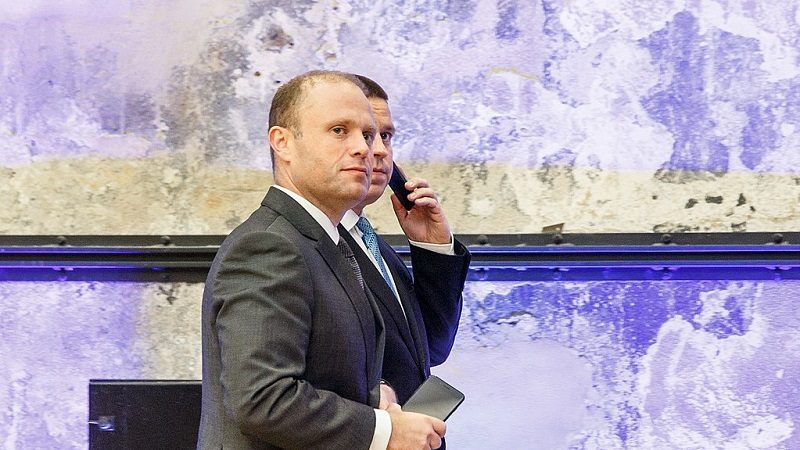Prime Minister Joseph Muscat said “I will not allow anybody to tarnish the reputation of this government or country to say there is no full democracy or freedom of expression” when asked about economy minister Chris Cardona’s use of garnishee orders to freeze journalist Daphne Caruana Galizia’s assets in February 2017.
The Council of Europe Platform to Promote the Protection of Journalism and Safety of Journalists issued a Level 2 Alert (Level 1 is the most severe) in response to Cardona’s action.
In its formal response, the government referred to Caruana Galizia as a “hate blogger”. The garnishee orders were never lifted and Caruana Galizia died in a car bomb on 16 October 2017 without access to her own bank accounts.
Muscat misses the irony in his statement on freedom of expression – “I will not allow anybody…” – and he also misses the mark.
Since Muscat’s comment, Malta experienced the worst deterioration in its democracy score of any country in Western Europe, according to The Economist Intelligence Unit’s Democracy Index.
Malta also experienced the sharpest drop in press freedom of all 180 countries covered by the 2018 Reporters Without Borders World Press Freedom Index. Malta’s current global rank of 65th places it below Malawi and above El Salvador, among the most corrupt States in the world.
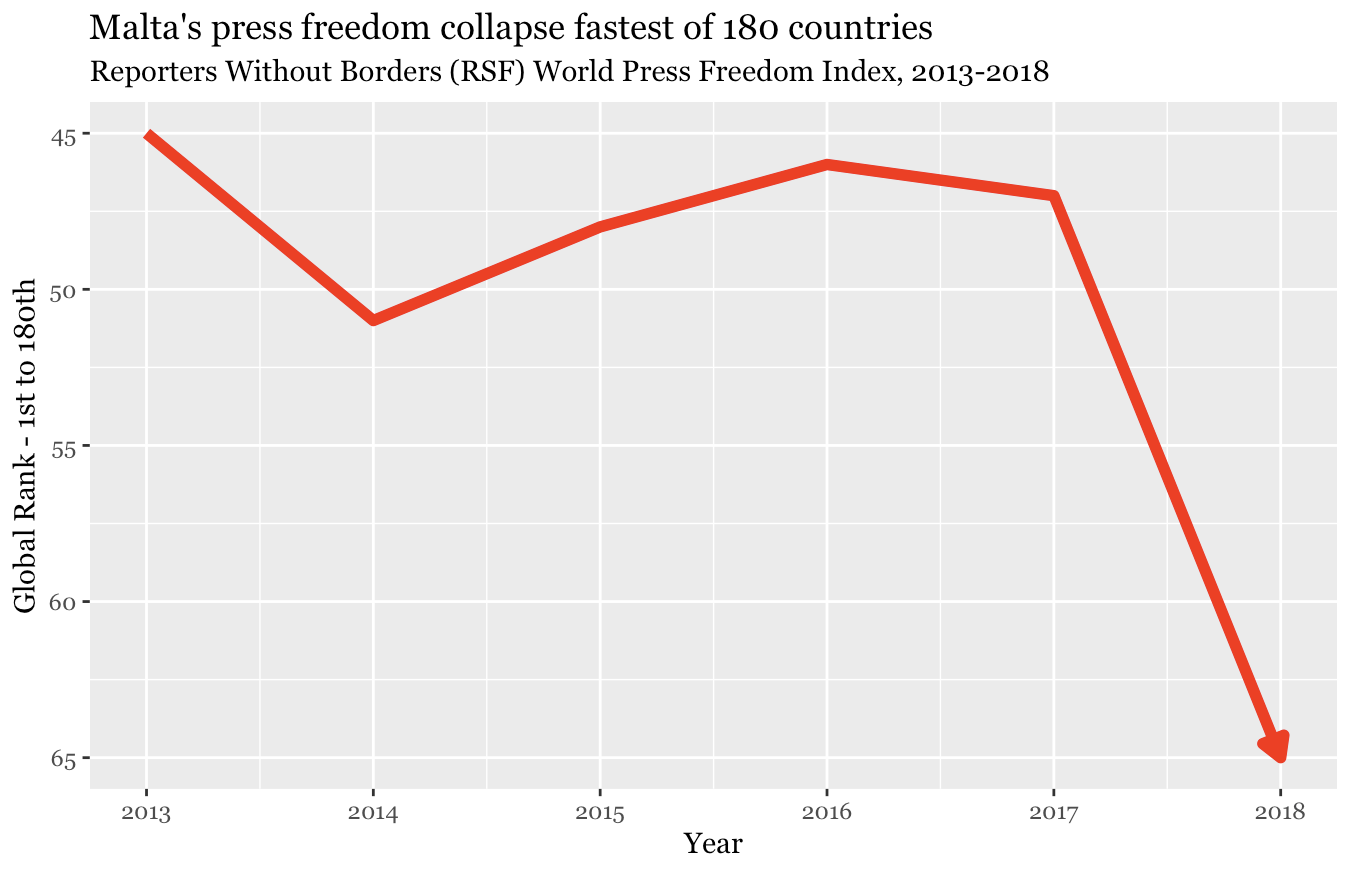
The Maltese government’s record in freedom of expression shows that it has in fact become the single greatest threat to freedom of expression in Malta – despite being obliged to protect the fundamental human right by both the Constitution (Article 41) and the European Convention on Human Rights (Article 10).
Government denying Maltese journalists and media houses protection against SLAPP
At the start of the year, every single government MP voted down amendments proposed by the Opposition to protect journalists against foreign lawsuits intended to censor, intimidate, and silence critics by crippling them financially (SLAPPs: Strategic Lawsuits Against Public Participation).
A number of SLAPPs from Pilatus Bank and its owner Ali Sadr Hasheminejad, who is under arrest in the US for massive money laundering and sanctions evasion, were shown to have silenced every single media house – except the Labour Party’s – as the Pilatus Bank scandal evolved.
Henley & Partners, the concessionaires for Malta’s cash for passports scheme, also threatened The Shift News with a SLAPP lawsuit in the US and the UK only a few weeks after its launch. The Shift refused to remove the article in question.
Justice Minister Owen Bonnici claimed the Anti-SLAPP Bill conflicted with EU law, a claim quickly denied by European Commissioner for Justice Vera Jourová.
Government departments are denying journalists’ Freedom of Information (FOI) requests
At a debate on free speech at the start of the year, Mario Schiavone from the Malta Institute of Journalists (IGM) said the Freedom of Information Act, which allows journalists to request data from the government that is in the public interest, is not being respected.
“At least 40% of all our requests to government departments have not even been entertained on the grounds that the data requested is commercially sensitive,” he said.
The Times of Malta regularly reports the government’s refusal to give its journalists information requested under the FOI Act.
Government ignoring questions from independent journalists
The government is repeatedly and consistently ignoring questions from journalists it doesn’t consider “friendly” on serious and urgent topics, while feeding its message to those who toe the line.
The Times of Malta’s Claire Caruana has raised the Prime Minister’s refusal to answer questions from Maltese journalists on Twitter. And Jacob Borg, who works for the same newsroom, said that Head of Government communications Kurt Farrugia “never bothered to answer or even acknowledge questions sent to him [Farrugia] almost three weeks ago” about the publication of the Egrant inquiry report.
The government avoids addressing inconvenient questions from international journalists too – German journalist Iris Rohmann makes note of this in her latest report on Malta, ‘A two-faced approach to a journalist’s murder‘ published last Wednesday.
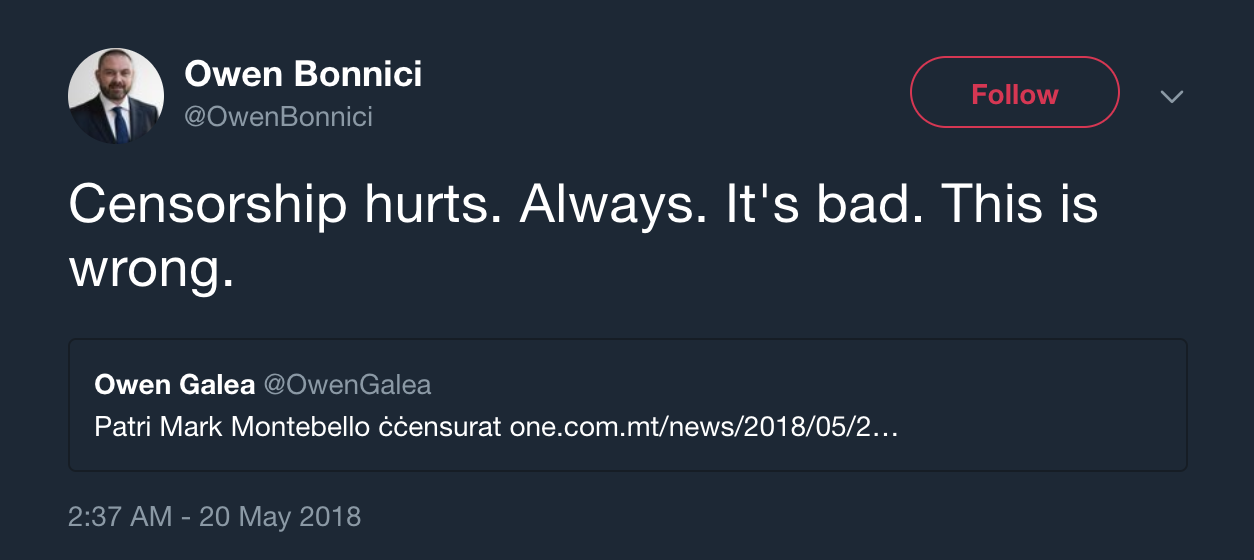
Government conspiring with Henley & Partners to silence Daphne Caruana Galizia
Bonnici was part of the now notorious email exchange between Christian Kälin of Henley & Partners, the Prime Minister (Joseph Muscat), his chief of staff (Keith Schembri), and the CEO of Malta’s sale of citizenship scheme (Jonathan Cardona), in which the government officials and Kälin conspired to cripple Caruana Galizia with financially ruinous lawsuits in the UK in retaliation for her journalism.
In a meeting with MEPs earlier in the year, Henley & Partners said they only sue Maltese journalists if they get an ‘OK’ from government.
During the government-manufactured Mark Montebello crisis, Bonnici tweeted: “Censorship hurts. Always. It’s bad. This is wrong”. He later said “I will not censor anyone for expressing his thoughts” at a live press conference in Friesland in defending V18’s Jason Micallef’s derogatory comments about Caruana Galizia.
Yet, he was busy in recent days blocking off a public monument and removing protest messages left there calling for justice for the assassinated journalist.
Government ministers only invite Labour Party media to press conferences
Tourism minister Konrad Mizzi has repeatedly failed to invite the independent media to his press events. Mizzi only invites Labour’s One News, L-Orizzont, and TVM, the State broadcaster which has completed its transformation into a government news outlet. Still, it was the Prime Minister who set the trend when visiting Azerbaijan (with Mizzi) in 2014 without the press.
Government has taken total control of State broadcaster
PBS has a constitutional obligation to impartiality, although it is always vulnerable to the whims of the Party in government. Yet, a recent editorial in The Malta Independent described PBS’s lack of impartiality as “disgraceful”.
Reno Bugeja has run the PBS newsroom since Labour leader Joseph Muscat’s first election in May 2013 and has come under fire for his pro-government bias.
The Shift News recently revealed that Angela Azzopardi Agius, a presenter and host on Television Malta (TVM), is on the Labour Party’s national executive despite PBS guidelines prohibiting news presenters associating with political parties.
TVM broadcaster Norma Saliba was also appointed to a government advisory board (while she was chair the Institute of Maltese Journalists (IGM)). She will retain the government position until 2020.
The Shift News analysed the social media data of PBS and found a ‘media blackout’ on stories critical of the government.
The Broadcasting Authority, which supervises PBS, has come under recent fire from the OSCE, which said “owing to its composition and the appointment procedure, the BA is generally not perceived as an independent regulator”.
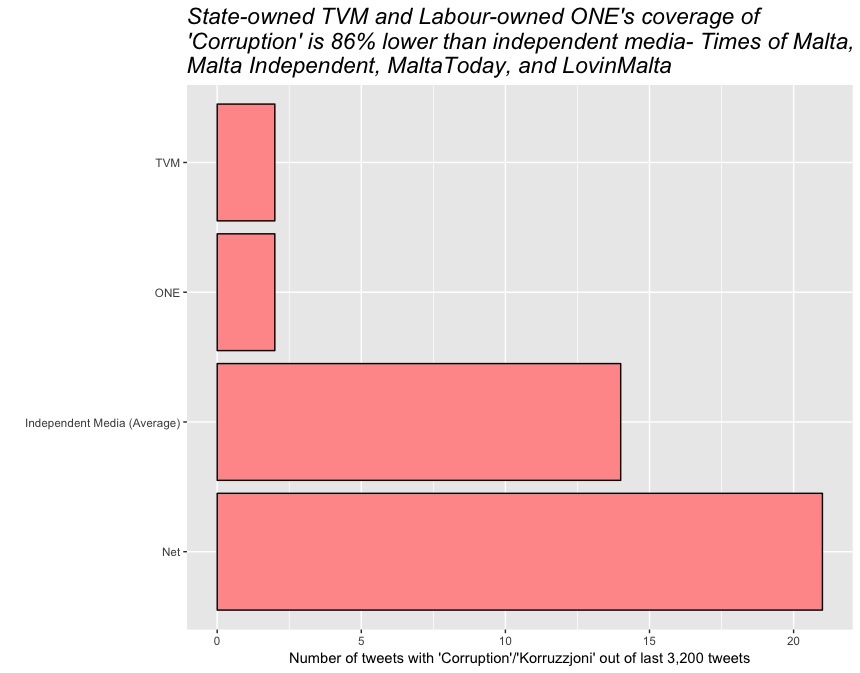
Government officials and their backers use vexatious libel suits to silence journalists
Caruana Galizia was subjected to relentless legal harassment. When she was assassinated, there were 47 libel suits against her – 42 in the civil courts, and five in the criminal courts.
People in or close to the current government filed most of the 47 libel suits against her. One Labour Party (and PN) donor, Silvio Debono, filed 19 libel suits for 19 separate sentences in a single one of her blog posts. He is behind the controversial DB project in St George’s Bay that last week received a planning permit despite public outrage.
Most of the civil lawsuits are ongoing against Caruana Galizia’s estate, meaning her widower and three sons. The Prime Minister has also sued her son, Pulitzer Prize-winning journalist Matthew Caruana Galizia, for libel for his reporting that Muscat is implicated in the Panama Papers. At the time, he was harassed by pro-Muscat portals, which accused him of being, among other things, ‘a drug dealer’.
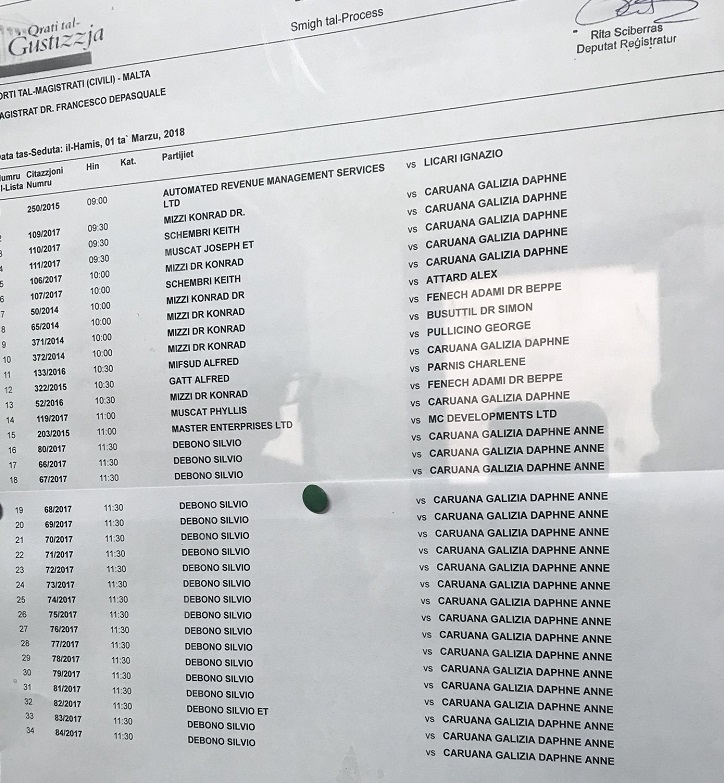
Court listing of the libel cases against Daphne Caruana Galizia still being heard after her death, most filed by government officials and DB Group’s Silvio Debono.
Government-sponsored trolling against journalists, activists and private citizens
Anti-corruption activist Tina Urso was targeted in a government-sponsored troll attack following a protest she joined in London in April against Malta’s cash for passport scheme.
Urso’s Facebook feed was inundated with threats of violence, misogynistic insults, including the claim that she ran a prostitution ring. The Shift News found that the trolling attack against Urso was coordinate through secret and closed Facebook groups administered by government employees and officials.
Many government officials, including the Prime Minister, had been members of the groups for some seven years before being exposed. Group members published Urso’s parents’ address and her ID card number. The Shift News investigation into Labour’s secret groups found that they are used in a systematic way to crush dissent.
Government suppressing citizens’ freedom of expression and freedom of assembly
The past week has seen the government repeatedly clearing the candles, flowers and messages at the Great Siege monument calling for justice for the assassinated journalist.
In its most recent clearance – a show of force and unacceptable suppression of freedom of expression – the government replaced a banner with the words ‘justice’ put there by citizens with one of its own. Citizens’ protest messages have been wiped clean 20 times in 11 months.
Read more in our Disinformation Watch series here.

